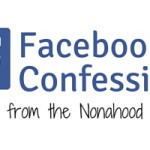
As a planet, we’re still in the beginning stages of testing the results of merging the centuries-long tradition of democracy with the infantile era of social media.
And so far, the bag is as mixed as they come.
A 2018 study by Pew Research found that Americans now get their news more often from social media than newspapers. The problem being that one source is professionally-vetted, researched, and tailored to a community. And the other is the Wild West meets 1984.
In no surprise, the two most popular social media platforms across all demographics, Facebook and YouTube, are rampant with political propaganda and misleading information. They are also much more popular for those above the age of 50.
Facebook came under fire repeatedly during the 2016 presidential campaign, when they failed to crack down on troves of disinformation – whether they came from local partisans or sweaty Russian intelligence officers in a Moscow basement.
To its credit, Facebook made something of an effort to clean up its digital act. CEO Mark Zuckerberg called for greater regulation of the internet in a Washington Post op-ed. The website has also issued warnings to users to “Be Skeptical of Headlines,” “Investigate the Source,” and “Check the Evidence,” and they partnered with the Poynter Journalism Institute and the Walter Cronkite School of Journalism.
However, even this process itself is becoming politicized. A Politico story about President Trump allegedly calling the COVID-19 outbreak “a hoax” during a rally in South Carolina was flagged as “false information” by the site’s partner Check Your Fact.
The problem? The fact-checking service is part of the Daily Caller – a conservative website that played a “key role” pushing partisan propaganda during the 2016 election cycle, according to a report from the Harvard University Office of Scholarly Communication.
Even now, during the COVID-19 crisis, we’re seeing rampant misinformation that seems to have political motivations or is just done for kicks.
This can all seem confusing and frustrating, and it’s certainly not going to get any easier. The technology that was supposed to connect the entire world, that would have had us all holding hands and singing Beatles songs in a sunny meadow, has instead made us meaner, less informed, and more withdrawn.
But the solution couldn’t be simpler. We all just stop.
Social media itself isn’t a lost cause. Newspapers today are held in much higher esteem than 100 years ago, when they freely claimed that aliens had been spotted on the moon and Chinese immigrants had mind-reading abilities. It took them time to gain credibility and to become a positive social force. I believe that social media will evolve in the same way.
But in the meantime, human nature makes it difficult for platforms like Facebook and Twitter to have a positive effect on us. You may have had the same feeling as I had, that you’ll be smarter and more adept than the rubes who get fooled and swayed by social media. But no manner of intelligence can cure you of the basic human needs to be right, to be listened to, and to find a community.
Politics has been a dirty game for hundreds of years that used people’s fears and wants against them – a sport where those who feel like the ends justify the means of their moral crusade. And the online arena has only made it easier for bad actors to succeed.
It may be difficult to leave your online community, but ask yourself: “Do I spend my time here happier or more upset than usual?” If the answer is the latter, then I think you have your answer.
You have the power to make yourself a more responsible citizen and a more present member of your community. Just simply log off.


